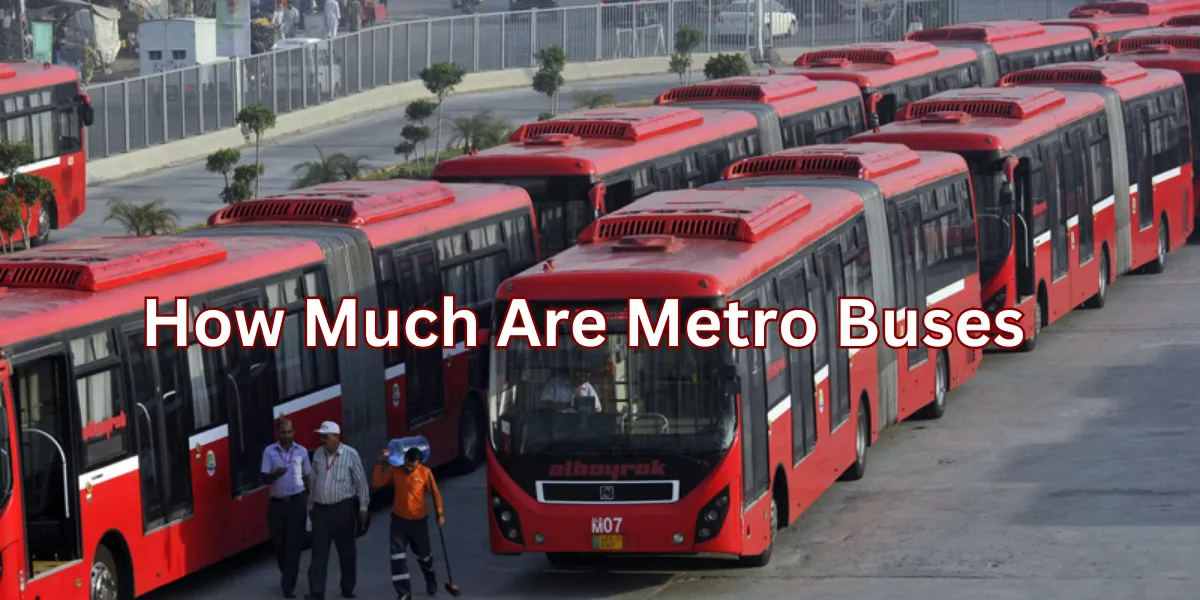How Much Are Metro Buses: Exploring Fares, Passes, and Savings:
Metro buses play a vital role in urban transportation, offering a convenient and cost-effective way for commuters to navigate bustling cityscapes. Understanding the pricing structure, fare options, and potential savings is essential for both daily commuters and occasional riders. In this article, we delve into the various aspects of metro bus costs, enabling you to make informed decisions about your transportation expenses.
The Cost of a Metro Bus Ride:
When it comes to metro bus fares, several factors come into play. The cost of a single ride varies based on the city and its specific transportation authority. On average, a standard one-way metro bus ride can range from $1.50 to $3.50. However, some cities offer discounted fares for students, seniors, and people with disabilities. It’s important to check with your local transit agency for accurate and up-to-date fare information.
Fare Options and Passes:
To cater to different commuter needs, metro bus systems often provide a variety of fare options and passes. These options can include:
Single Ride Fare:
This is the basic fare for a one-time bus ride. It’s ideal for occasional riders or those who prefer not to commit to a pass.
Daily Pass:
A daily pass allows unlimited rides on the metro bus system for a single day. If you have multiple stops or transfers planned, this can be a cost-effective choice.
Weekly or Monthly Pass:
Frequent commuters can benefit from a weekly or monthly pass, providing unlimited rides for the designated period. These passes often result in significant savings for those who rely on metro buses as their primary mode of transportation.
Express or Premium Pass:
Some metro systems offer express or premium passes that include additional perks, such as priority boarding or access to express routes.

Tips for Saving Money:
Maximizing your savings while using metro buses requires a bit of planning and strategy. Here are some practical tips to help you cut down on transportation expenses:
Assess Your Commuting Frequency:
Evaluate how often you use metro buses. If you’re a daily commuter, investing in a weekly or monthly pass could be more cost-effective than purchasing single rides.
Opt for Bulk Passes:
Check if your local transit agency offers bulk pass discounts. Purchasing passes in bulk, such as a package of 10 rides, can lead to substantial savings over time.
Explore Employer Benefits:
Some employers provide transportation benefits, including subsidized passes or pre-tax deductions for commuting expenses. Inquire with your HR department to see if you’re eligible for such programs.
Plan Your Routes:
Efficient route planning can help you minimize the number of transfers or trips, ultimately reducing your overall transportation costs.
Metro buses offer an accessible and budget-friendly way to navigate urban environments. By understanding the fare options, passes, and money-saving strategies available, you can make the most of your metro bus experience. Whether you’re a daily commuter or an occasional rider, taking advantage of the various cost-effective options will contribute to a smoother and more economical journey.
Business Bay Metro Bus Stop Landside:
- The Business Bay Metro Bus Stop Landside serves as a crucial transportation hub, connecting commuters to various destinations. Conveniently located in the heart of Business Bay, this stop ensures seamless travel for professionals and residents alike, contributing to the efficiency of the city’s transit network.
Happy Farm Ajman :
- Nestled in the charming city of Happy Farm Ajman, is a delightful escape from urban life. With its lush landscapes and vibrant attractions, the farm offers families and visitors a chance to unwind, connect with nature, and enjoy a range of recreational activities.


